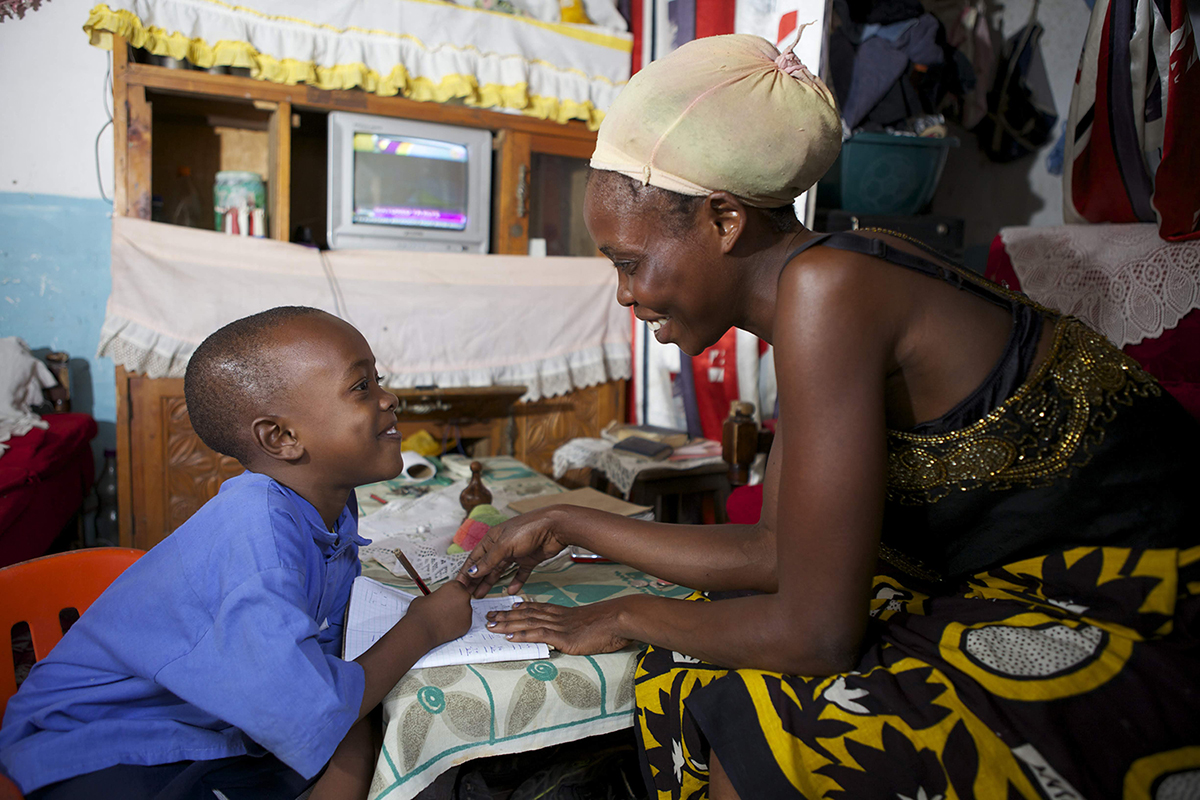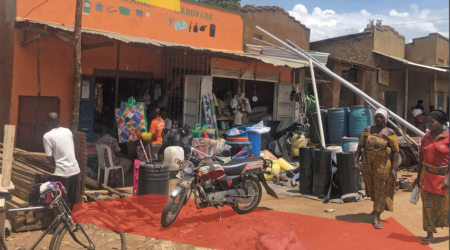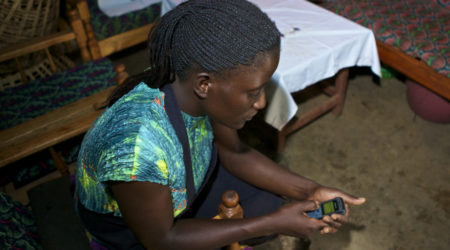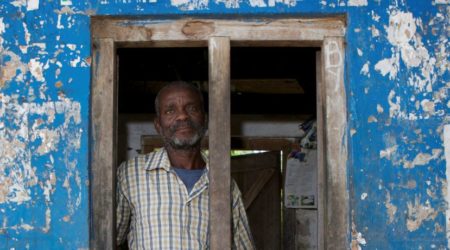The buck stops with women

Originally posted on the FSD Kenya Website, April 30, 2020
How Kenyan mothers are keeping food on the table through the coronavirus crisis
Samson in rural Eldoret, told us last week that he took an M-Shwari loan of Ksh 1,900, bought maize and cooking oil, and gave the balance of Ksh 500 to his wife to buy vegetables.“It’s up to you now to make sure we have food,” he said when handing her the money. It is good to be open about financial matters in the family, he told us. “Even the children saw me giving her the money.”
Over the past three weeks, our team has been calling former Kenya Financial Diaries households to understand how they are being impacted by the coronavirus. While so much is changing for people economically, some norms and behaviors are more sticky. One thing we are hearing from many families is that the norm around women being ultimately responsible for feeding their families remains.
In a recent post, we highlighted the ways that some families quarantined together are reconfiguring gender roles in positive ways. At the same time, it is also true that in many other households, women’s burdens have become heavier.
Women manage day-to-day expenses
The social norm that dictates that women should manage day-to-day expenses in the household was something we found consistent across respondents throughout the Financial Diaries study. The current challenge is that some women are being asked to work miracles to make sure their families continue to be fed even as resources dwindle. Demands for food are also increasing for many with children at home from school and relatives sometimes visiting to wait out the crisis.
Some women are making this work by rationing the food that they have and reducing the number and size of meals they are offering their families. Others have opted for cheaper food alternatives,
“We are taking tea with cassavas instead of bread as we used to. We are trying to save whatever little we have for farming,” a respondent in Mombasa told us.
Another in Nairobi indicated she is reducing food portions:
“We have reduced the amount of food that we are cooking to save some for later.”
Often, their husbands in rural and urban areas alike are not aware of how hard this balancing act can be. Since it is their wives and sometimes househelps who do the shopping, they are not even sure what basic commodities cost or how much their prices are changing under current conditions. But, like Samson above, many think they have done their part if they have given their wives some money to spend, however small it may be.
Many women are finding a way to continue earning an income
In our previous work on the Diaries, we found women more often working in informal businesses and casual work, often because this was necessary for balancing their needs to earn an income with their other household responsibilities. That reality was part of the cause of the income gap between women. But now, it is those more informal and independent types of work that remain available, in limited forms. Often husbands have lost jobs as mechanics and construction workers to come home to the rural areas, while their wives are still able to pick up some casual work or run their small business, albeit at lower levels of turnover. Suddenly, wives are finding themselves responsible for meeting a much larger share of the household budget.
In some cases, husbands and children who are home are chipping in with household work so their mothers can keep earning a cash income. But, again, this is a loose obligation. Men are under no pressure to help alleviate women’s home and childcare responsibilities. Omar in Mombasa, for example, has lost his job for now, but says he can’t touch the household chores or help his wife watch their small children. “Those remain a woman’s tasks,” he said.
Gendered differences in credit access may make it particularly difficult for women to cope with their strained responsibilities.
Many of the informal financial tools that prove to be so helpful for women in their role of managing day-to-day expenses—such as chamas and shopkeeper credit—are on hold because of the crisis. These are the places women often turn for credit, but shops are afraid to lend right now, and chamas can no longer meet. Many have stopped even lending by phone since loan decisions typically require member approval.
Instead, we see that men, particularly those with more stable work and formal savings, are more likely to be able to still borrow from formal sources (especially digital loans) and renegotiate existing loans with banks. A number of our female respondents had defaulted on low-value digital loans in the past and never recovered. Formal borrowing avenues are now closed for them.
Remittances and other income from husbands have diminished, exacerbating the pressure for some women
Of course, there is also a social norm for fathers to make sure they “provide” for their children, even if they are no longer staying with their child’s mother. What we are hearing in our calls, however, is that this obligation is looser than the obligation of mothers to feed their kids. Under strain, many fathers have reduced the remittances they send to take care of their children.
Janet lives in Nairobi where she, like many other women, runs a small kiosk selling vegetables. She has watched her revenues plummet. Customers have less money to spend and there is less foot traffic in the neighborhood. She knows she has no choice but to still go out and sell every day to keep a few coins coming in. About two weeks ago, afraid a total lockdown was coming, Janet used her business capital to stock up on food for the house. But the severe “lockdown” she feared never came. This has made it hard to keep the kiosk running at all. In dire straits, she reached out to her son’s father to ask for help.
“I have been taking care of my son alone, and I decided to call him (her son’s father) so that at least he could send some money, but his phone has been offline, so I still don’t know what to do next.”
Ken, who’s salary as a security guard has not been affected at all by the coronavirus, has still cut back what he sends the mother of his children.
“I usually give them money every day or two, but I have reduced the amount.”
He seems to want to be sure he has a cushion for himself if things change.
Evans in Mombasa took a second wife during the Diaries. He was confident his income from selling chang’aa (moonshine) wholesale would take care of both families. But now, as his sales go down and costs for evading arrest rise, he has cut back what he sends to his first family, putting his wife in a bind:
I sent KSh 1000 to my first wife who lives in Siaya. Yesterday she called me asking me what is not happening, that they are dying of hunger. I told her we are also dying of hunger here and we have nothing to eat. She kept quiet and disconnected the call.”
Where the buck stops
With all the uncertainty of the present moment, both men and women are facing many similar challenges. However, one thing that stands out is that women are bearing a heavy load in making sure their families are fed. For them, this is a responsibility, an obligation that cannot be evaded, no matter how hard things become.
This is part of a series of rapidly-produced blogs on how low-income Kenyans are coping with the changes in their lives induced by the novel Coronavirus (COVID-19). This research was implemented in partnership between BFA Global and FSD Kenya. Read more about the Kenya Financial Diaries project here. We will continue checking in with Diaries participants throughout the crisis. For the latest news and insights from this work, follow @FSDKe and @BFAGlobal on Twitter, as well as hashtags #Covid19DiariesKenya and #KomeshaCorona.



